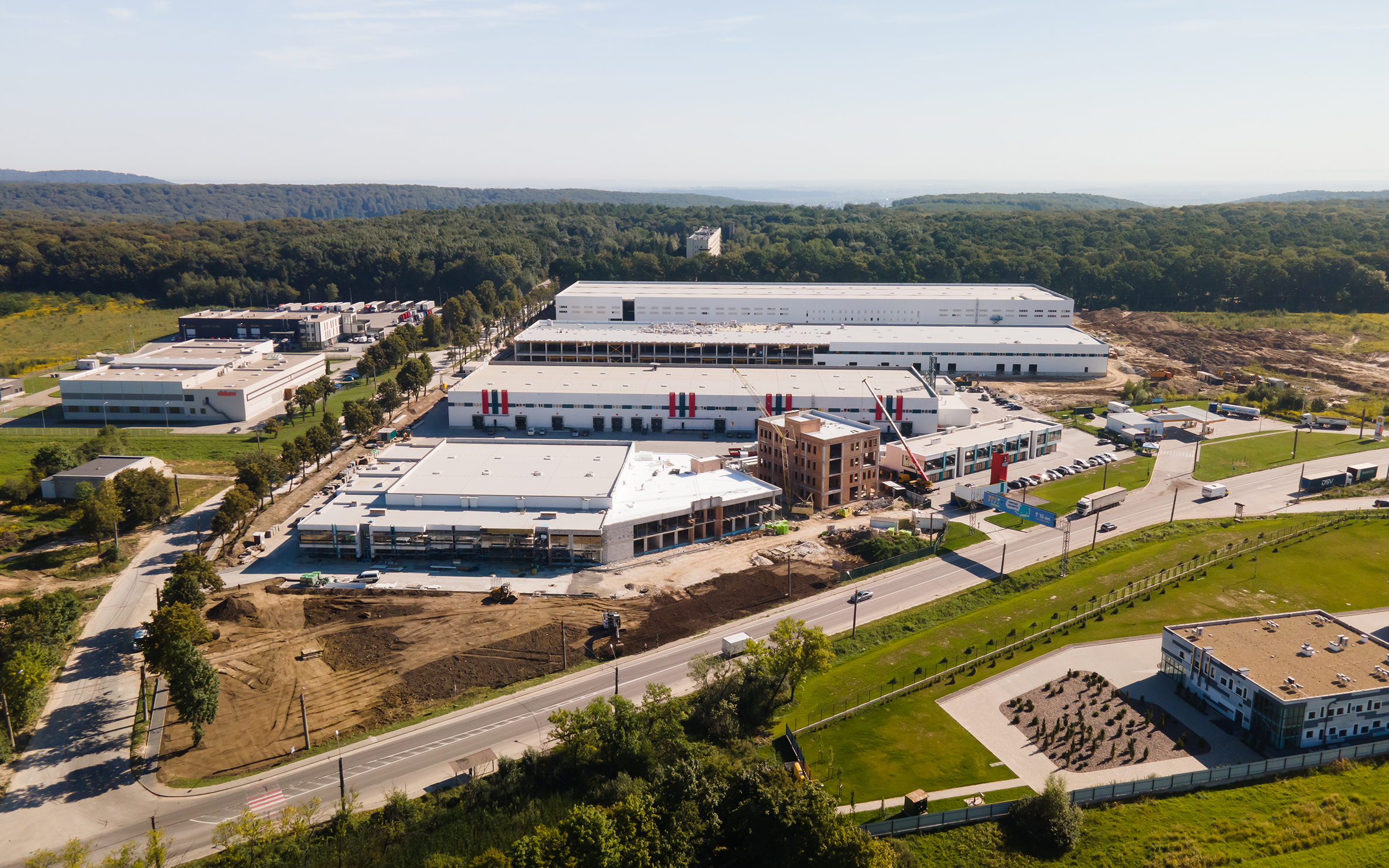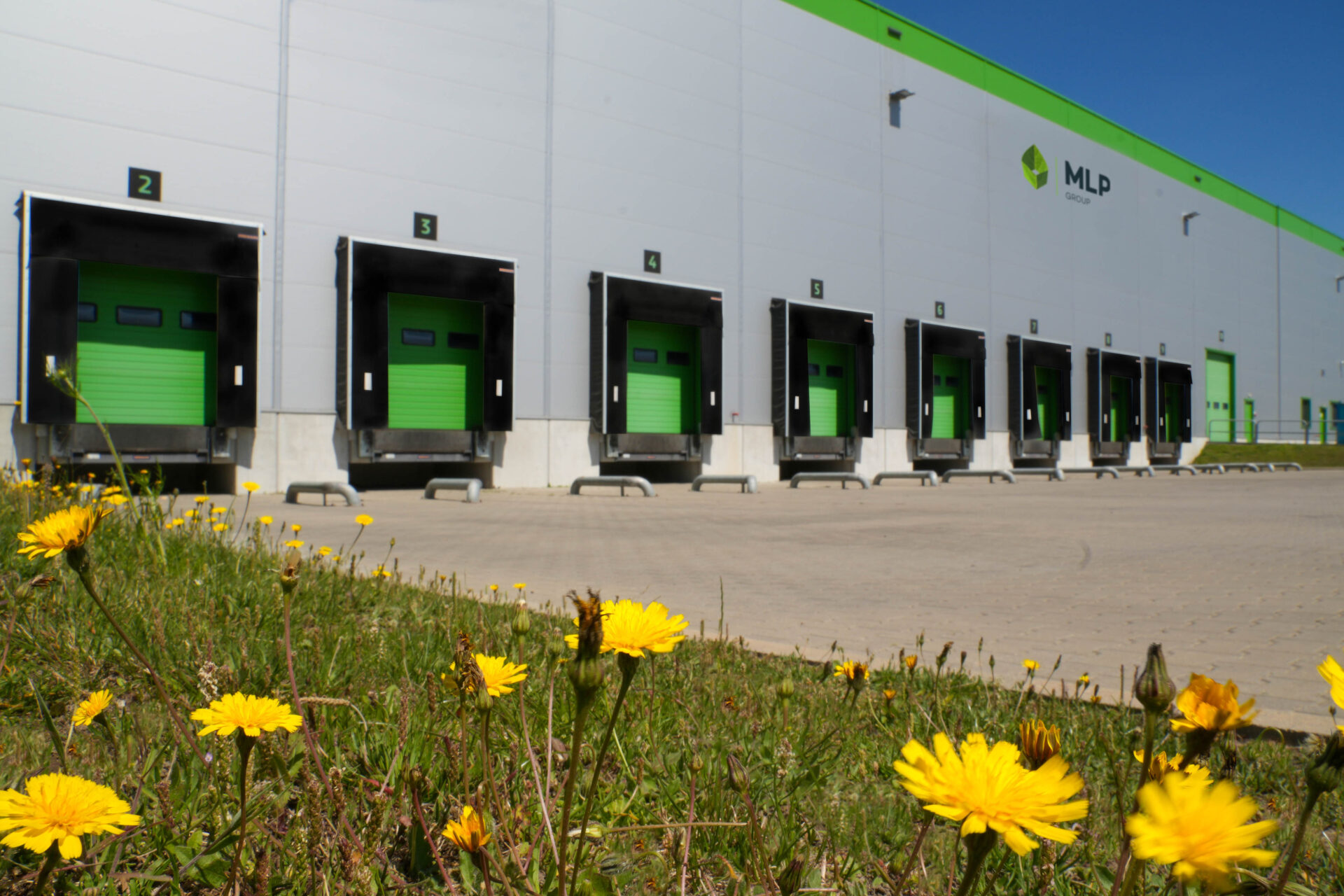Since the beginning of hostilities in Ukraine, entrepreneurs have faced the need to remove production facilities, product equipment and colleague teams from dangerous regions. The relocation of businesses took place spontaneously, until May. Decisions were made quickly and without consideration, the main goal was to save and secure people and property. Companies dismantled their production lines, closed warehouses and transported assets to Western Ukraine.
According to the head of Alterra Group’s Conceptology Department, Gennady Hrynenko, at the beginning of the war, all vacant warehouses and production facilities in Lviv that were suitable for work were filled. “During that moment, we had ready the 2nd and 3rd queue of warehouses of the Lviv logistics centre PORT, so we accommodated tenants who needed warehouses.”
Now, entrepreneurs are taking a more cautious approach to relocating their businesses and launching products in new regions. Everyone realized that relocation, in today’s conditions, is not a matter of one or two months. “They contact us with detailed technical tasks, complex questions related to the location of the warehouse or production, the number of personnel who will work there, and the requirements for the premises,” says Gennadiy Grynenko, “Some companies are “entering” Western Ukraine according to pre-war development plans, as their businesses already required warehouse space in the region. The war only accelerated this process.” Therefore, some of the companies in the PORT Logistics Center have relocated, some are businesses in Lviv, and some have moved as planned.
For example, the innovative international company FM Logistic has its premises near Kyiv in the Boryspil district, but its clients and logistics needed a warehouse in Lviv. Mobizhuk company – shops of smartphones, mobile phones, electronics and household electronics – moved to the PORT Logistics Center. In the Western region, the company has the largest number of sales points, so it is convenient for it to locate its distribution centre here.
“Most businesses diversified due to the war, means that they have opened warehouses in Lviv, but they continue to maintain warehouses in Kyiv and distribute goods to two regions,” says Alterra Group expert, “For example, Marathon – stores and distribution of sports brands, opened a warehouse in Lviv and continue to have a warehouse in Kyiv.” Among others, APG, the exclusive distributor of ACANA and other brands, placed its assets in PORT. The operator’s supply chains have changed due to the military actions in Ukraine, as container deliveries from Canada and Asia cannot pass through Odesa, so they arrive via Europe and Turkey and are later brought by trucks to Ukraine. In the first months of the war, there were risks of destroying the warehouse in Kyiv, APG decided to concentrate their production in the West of Ukraine in the PORT logistics centre and reduce the warehouse in Kyiv. The Lviv warehouse has already become a distribution centre for the company, where most of the trucks arrive, and from here products are distributed throughout the Western region, and some are sent to Kyiv.
“We are constantly receiving requests to increase or open warehouse or production facilities in Lviv,” says Genadiy Grynenko, “for example, a food manufacturing company has contacted us. Firstly, this is because a large number of people moved to the Western region and the population increased, accordingly, consumer demand increased. Secondly, the main retailers such as “Fozzy Group” and “ATB” have increased the volume of distribution centres in Western Ukraine. From now on, suppliers and distributors who work with food products need to have warehouses in Lviv to cover the demand for food products in the Western region.”
Some companies relocate due to changes in raw material supply chains.
For example, agricultural businesses that grew something in the north or south of Ukraine are looking for opportunities to cultivate these products in Central and Western Ukraine, it is economically expedient for them to open their factories here to be close to raw materials and the sales market. Exporters whose sales market is Europe are relocating, as well as businesses that received raw materials from Belarus. Now it comes from Europe, so the Lviv region is very convenient in terms of location for receiving raw materials, processing them and sending them back. The same happens with companies that receive products from Europe. It is convenient for them to have a distribution centre in the West of Ukraine 80 km from the border, to receive it by rail or road transport and distribute it to other regions from there. This is influenced by the market reduction factor, people left the occupied territories, so the consumption of any product has decreased significantly in the Kherson, Donetsk, Kharkiv, Sumy, Zaporizhzhya and Chernihiv regions.
“Business decentralization took place in Ukraine. Many companies apply for relocation requests. However, moving even a storage company requires significant financial resources, and if we talk about production companies, then we are talking about millions of dollars. Many did not believe that a war in the centre of Europe in the 21st century was possible, so businesses did not accumulate funds for relocation,” says Genadiy Grinenko. “Currently, everyone is analyzing decisions from the state, financing programs for relocated businesses, assistance with location, lending, benefits and grants”.
A large number of companies will be concentrated in the West of Ukraine, in particular in Lviv. The Lviv Regional Military Administration is positively disposed to the development of the region and maximally supports enterprises in locating them in the Lviv Region. But businesses need government lending and financing programs that will speed up relocation to Western Ukraine and the opening of new factories in the region.







